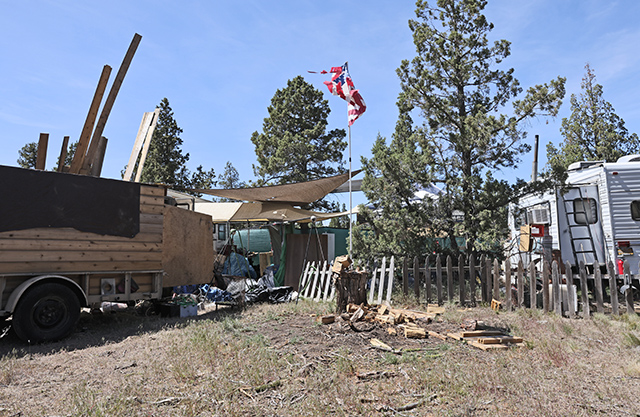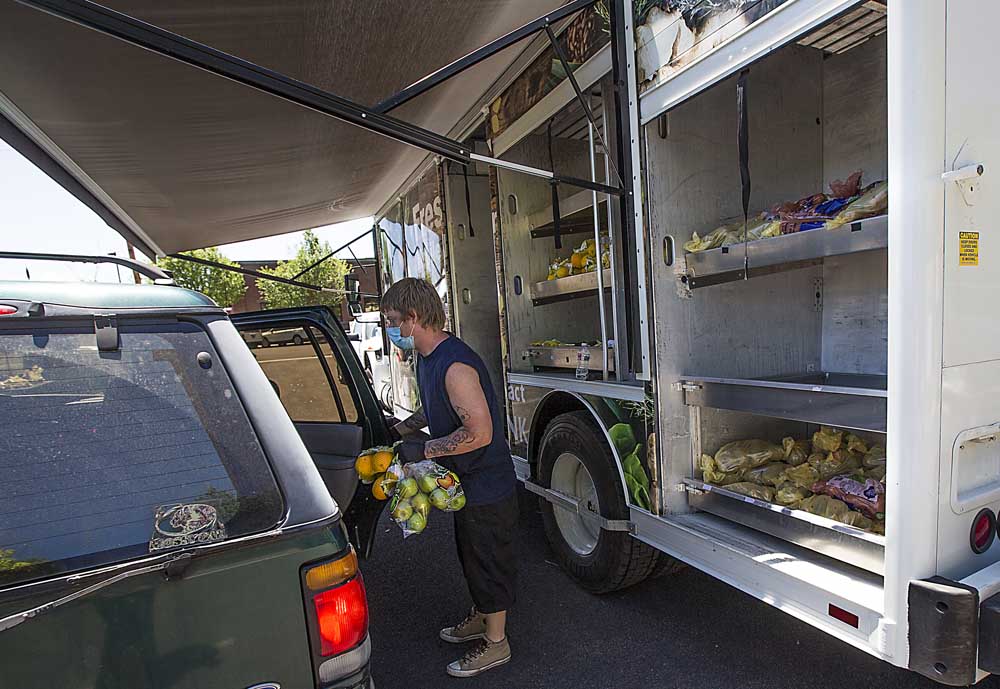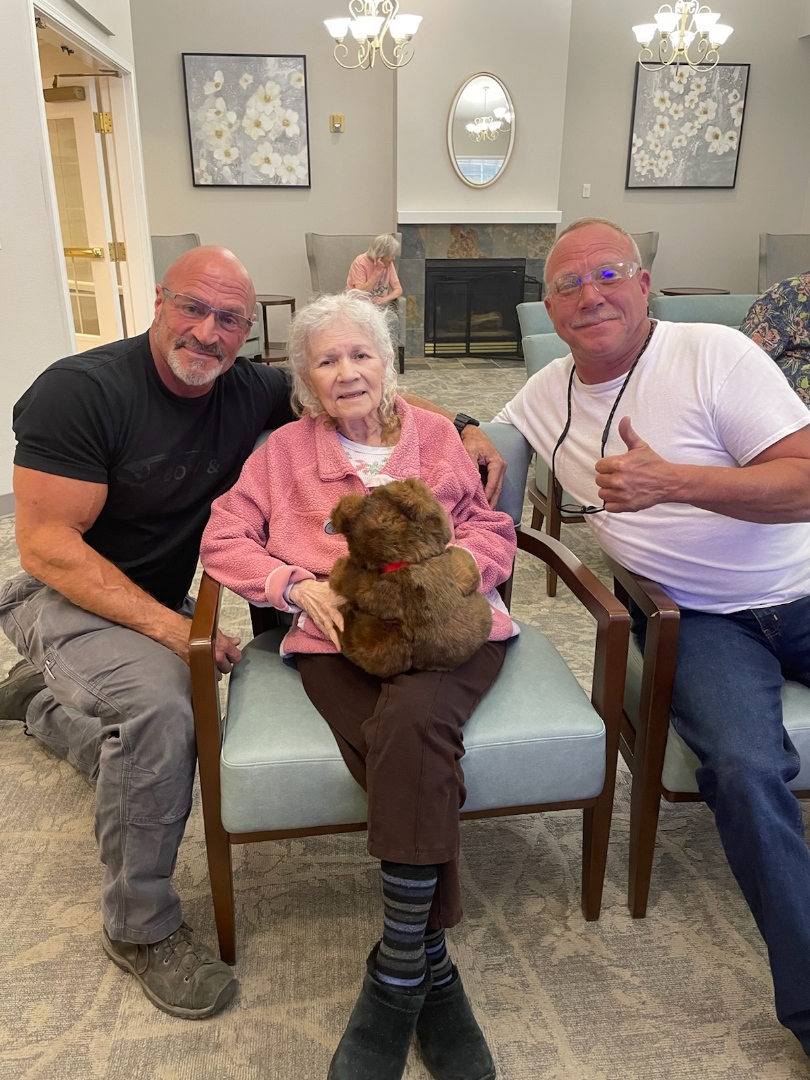In Wash. town, ”Bend” a warning
Published 5:00 am Saturday, May 6, 2006

- Walla Walla, Wash., deli owner Bob Austin, 51, has never been to Bend, but hes heard enough about Central Oregons growth to post two signs in his store that urge customers to oppose new developments. Around the town of 30,000, Bend has become shorthand for discussion about growth.
WALLA WALLA, Wash. When Daniel Clark thinks of the worst-case scenario for his hometown of Walla Walla, he thinks of Bend.
(Bend) certainly has a reputation for that type of very rapid growth that has overwhelmed the pre-existing community, said Clark, a lawyer in this town of 30,000 in southeastern Washington. Thats not something that people who value their community and their culture and their environment really ask for.
Clark hasnt set foot in Central Oregon in 15 years, but that doesnt stop him from forming an opinion about Bend.
At least a dozen people have told me, Bend, Bend, Bend, Clark said. They say, You have to get ready, you have to do things differently.
Bend looms large in Walla Walla politics these days, both as an economic force and a cautionary tale, Clark said.
explosive growth that Central Oregon has seen in recent years. Others have seized on a proposed destination resort-style development by a Bend developer as the symbol of the wrong kind of growth.
Theyve summed up their opposition to Bend with a bumper sticker that recently began popping up in Walla Walla. It reads: Dont Bend Walla Walla.
For nearly 30 years, Walla Wallas population has hovered between 25,000 and 30,000 people. Thats starting to change, as the town has earned the reputation as a hot spot for top-notch wines. More than 75 wineries call the town home. Sunset magazine named Walla Walla its 2005 Wine Destination of the Year and a host of other publications, including The Chicago Tribune and Travel + Leisure, have featured the town.
The towns historic downtown, which features fine dining and many tasting rooms, feels a little like an oasis in the middle of a desert of hay and vegetable fields. But it still has a department store and other amenities that keep locals coming there, too, said Michael Davidson, director of Tourism Walla Walla.
Its a working downtown, Davidson said. You can go downtown and buy a pair of socks.
Walla Walla is also home to three colleges: top-tier liberal arts school Whitman, the Adventist-affiliated Walla Walla College and Walla Walla Community College, which recently established its own wine program.
Recent interest in Walla Walla is similar to that of Bend and other rural towns that have been discovered by a national audience, said Walla Walla County Community Development Director Scott Revell.
It is no different in any community that grows, Revell said. Go to Telluride, (Colo.), go to Durango, (Colo.), go to Bozeman, Montana.
Still, there are no signs here reading Dont Durango Walla Walla. Theres a reason Bend has become the punching bag for opponents of fast growth: The reason is Illahee, a 365-home development proposed by Bend developer Abito, formerly called Pennbrook Homes.
First resort
Pennbrook has built several projects in Deschutes County, including Highland Parks, near
Eagle Crest, and the 12-home Shevlin Reserve development on Bends west side. Last month, the company changed its name to Abito, an Italian word meaning to live.
Abito plans to build Walla Wallas first big resort on a former hay farm, located about two miles outside the city. Steve Robertson, president and co-owner of Abito, said he decided to build Illahee after experiencing Walla Wallas charm two and a half years ago.
The reality is this area is a very attractive area, Robertson said. The wine industry just makes it that much more attractive and people from Seattle particularly are going to want to be in this environment under the sun, enjoying the things that makes this community different from Seattle.
The opposition to Illahee is largely because it was the first big development proposed in Walla Walla, Robertson said.
Once they bring up their objections and once their objections are answered and we have to answer them repeatedly the facts come out … and its good for everybody, Robertson said. People are beginning to come around to the point that growth is going to happen, lets make sure its quality growth, and this project is of the highest quality.
Illahee is slated to include 365 homes and townhouses, a public nine-hole golf course, a 60-room hotel, 10 miles of trails and a high-end restaurant. To give the development a Walla Walla touch, 30 of the 358 acres will be set aside as a working vineyard.
The name Illahee, according to the master plan, is the Chinook Indian word for land, country, earth and soil.
If the project clears various administrative hurdles, the first houses could be finished at Illahee by late 2007 or early 2008, Robertson said. In all, the project could total $200 million, according to the master plan.
Six of Walla Wallas seven city councilors voted in favor of the Illahee project earlier this year. The three-member county commission also unanimously approved the projects first step.
Thats because Illahee is just the sort of project that Walla Walla needs, said Jim Kuntz, executive director of the Port of Walla Walla.
I think a strong majority of people are interested in responsible growth and they perceive the Pennbrook development as a responsible growth, Kuntz said.
Not everyone agrees, though.
Last month at Merchants Ltd., a popular downtown deli, two handmade signs reading Dont Bend Walla Walla, sat facing the street, while a petition by the door urged residents to oppose the Illahee development.
Merchants Ltd. owner Bob Austin said tourism has helped his business, but he liked his town better before its wine became famous.
In a small town like this, those of us whove been here years and years used to be able to recognize and enjoy recognizing every face that we saw, Austin said.
Now: Were just busy and the town is full of strangers.
Austin, Clark and the group Citizens for Good Governance have challenged Illahee on other grounds too. They argue that the development will take too much water from the Walla Walla Valley aquifer, and that local governments have circumvented the planning process to chase outside investment.
In planning for growth, were supposed to be planning for a range of options, said Nancy Ball, head of Citizens for Good Governance. (Tourists) tend to skew what is developed. Boutiques and stores that are coming in to meet the tourist trade, but are priced at a level that local folks cant buy.
Opposition to Illahee has been fierce because it is the first big development in Walla Wallas recent history, said Jim Philips, a city councilor and builder.
Weve been pretty much the same (rate of) growth for the past 40 or 50 years, then five to 10 years ago we started developing, Phillips said. Now that growth has arrived, the City Council doesnt want to obstruct development without good reason, he said.
The city is not slow-growthing it, Phillips said. We look at each development on its merits.
The city is considering a number of rules to guide new developments and reduce sprawl, said Kim Lyonnais, Walla Walla director of development services. Many of the measures are familiar to Bend planners. They include allowing higher-density development, apartments and condos above downtown shops and varying lot sizes, he said.
As in Bend, Lyonnais said, Walla Walla is struggling to keep homes affordable.
Were dealing with affordable housing and this growth spurt and wondering how do we manage it? he said.
Bending Bend
While Walla Walla debates whether it should become like Bend, residents here are still fighting over where to draw the line.
Bend has gained 17,000 residents since 2000, when its population was 53,000 people, according to Portland State University statistics. In 1990, it was just 20,000 people.
For Kelli Brooks, owner of At The Beach swimwear boutique downtown, Bends growth has been welcome, personally and for her business.
I love the more urban feel, said Brooks, a native of Prineville who has spent most of her 30-some years in Central Oregon. I think its good.
The combination of tourists and a larger population mean that her store is busy nine months of the year, Brooks said.
But California transplant Rick Conners, 59, said the region has gotten too big. Conners, who runs the Central Oregon Scuba Academy, moved to Tumalo 10 years ago seeking an area unspoiled by growth.
This is a place where we could afford to buy some land and buy some animals, Conners said.
He spent 20 years working in real estate in the Los Angeles area before moving to Hawaii, then Central Oregon to escape creeping growth, he said.
Building up Bend to a certain point was a good thing, but now its enough, Conners said. There comes a point where the beauty of this area and other areas can only sustain a certain number of developments, a certain number of asphalt, concrete and structures and still be pleasing to the people who came here to enjoy them.
Both Bend and Walla Walla continue to struggle with how to address pressures to grow. In the short term, though, the controversy could provide a tiny boost to the Central Oregon tourism industry. Both Merchants Ltd. owner Austin and Port of Walla Walla head Kuntz said they want to see Bend for themselves.
Im so intrigued with all of this now, said Austin. Ive got to come and visit.
Keith Chu can be reached at 617-7829 or at kchu@bend
bulletin.com.






